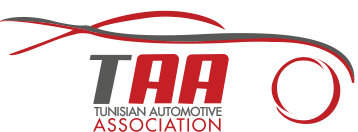In the “Focus On” series, we went to meet Mr. Ahmed Hentati CEO of SIA, the Société Industrielle d’Amortisseurs. This company was founded in 1989 in partnership with RECORD France. Thanks to the two brands SIA’AM and RECORD, SIA is the leader in the manufacture and marketing of shock absorbers in the southern Mediterranean.
SIA exports more than 80% of its production and supplies the main European car manufacturers with original and spare parts. It also provides subcontracting on behalf of the world’s largest automotive suppliers.
Hello Mr Hentati, could you introduce yourself? My name is Ahmed Hentati and I have been the CEO of the Société Industrielle d’Amortisseurs SIA since the end of 2009. After studying preparatory science Maths Sup Maths Spé in France,
I joined the Ecole des Mines d’Alès to have an engineering degree then Georgia Tech in Atlanta to do a Masters in Industrial Engineering. When I returned to Tunisia,
I worked at Lear Corporation until 2009 as a continuous improvement and then quality engineer for the Ford customer. I manage the family company SIA since the end of 2009.
The Hentati group is also among the biggest shareholders of the MISFAT group with more than 45% of participation. To talk more about SIA and our international presence, we are represented through overseas agents in some countries. On the other hand, we export our shock absorbers and other suspension parts throughout the Mediterranean region mainly to North Africa and Europe.
In North Africa, we export under our own brands: SIAAM and Record France under licence. In Europe, SIAAM is offered in particular in France by our exclusive partner Exadis, which is owned by the Renault group and the Mobivia group (owner of several chains including Norauto and Midas). We are also present in Europe through our attractive MDD (distributor/private label) offer.
And there, we work with major brands such as Eurorepar from the Stellantis group, Motrio from the Renault group and other major global vehicle suppliers.
How did you do within the SIA to overcome the Coronavirus crisis?
Since March 2020, we have implemented a reinforced health protocol.
It has allowed us to have a limited number of positive COVID cases with procedures limiting the risk of spreading the virus when a case has been identified. We have also defined a BCP:
Business Continuity Plan to ensure our operational continuity.
This is in fact what has allowed us to ensure our resilience in the face of this pandemic. The 3rd element that allowed us to manage this period from March to May 2020 well is our strong presence within the T.A.A, of which I am a member within the management committee.
We were able to share our “Best Practices” among members, obtain timely information and thus be able to act and reassure our internal and external customers. We have also tried to ensure that our Supply Chain is not broken through regular real-time monitoring with suppliers. Can you tell us more about your involvement with the TAA? The SIA has been a member of the TAA since 2017 and I have personally been in the management committee since July 2019. For me, the TAA must manage a central role for the development of the automotive sector in the country, hence my commitment and contribution. During the start of the pandemic in 2020,
I happened to help reassure certain car manufacturers sourcing from Tunisia by helping their suppliers resume activity in the best conditions with the necessary authorizations and by having a contact regular with them.
I was also part of the committee that participated in the development of the pact for the competitiveness of the automotive industry in Tunisia.
In addition, I am currently part of the management team in charge of creating the business plan of the TAMA (Tunisian Automotive Management Academy) academy which will aim to meet the training needs (management, technical or business) of automotive industrial companies in Tunisia, and in priority to members of the TAA.
In your opinion, how competitive is Tunisia compared to other countries which also rely on the automotive industry? Since the end of the 1970s, we have started to develop skills in the automotive industry, which has given us a head start compared to our neighbors in the southern Mediterranean region. Moreover, if we analyze the hourly rates of labor or the salaries of executives in the Tunisian automotive industry, we realize that we are still





0 Comments